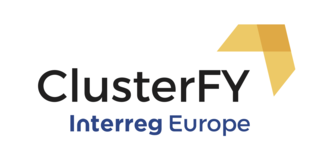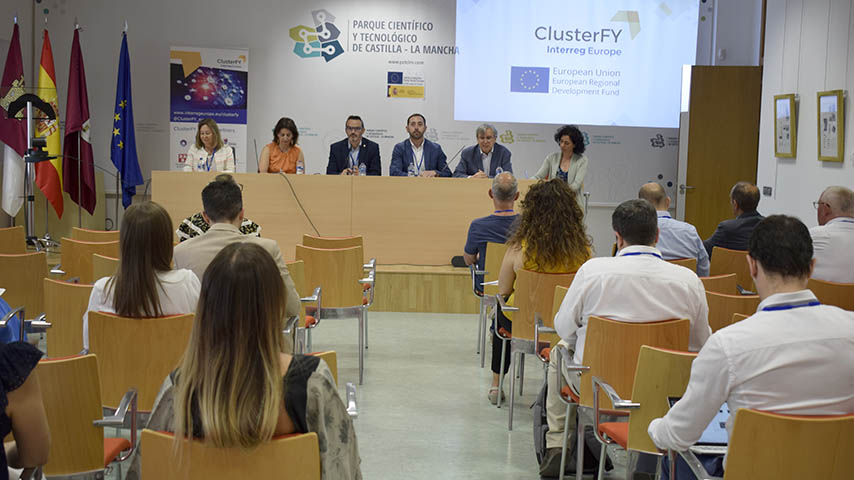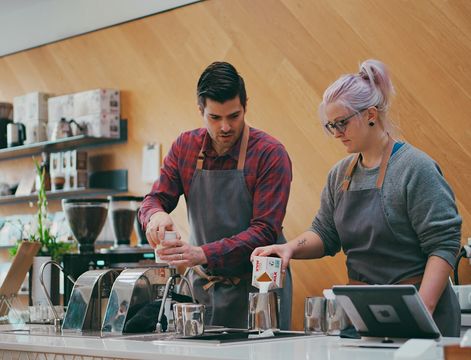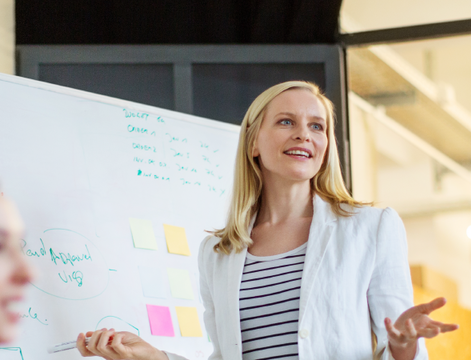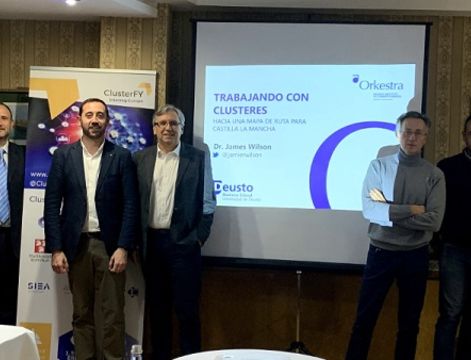Stimulating the dialogue
Rima Dijkstra: “The challenge to interact with regional stakeholders was the focal point of the workshop. This led to an interesting set of recommendations from the attending partners, which should be taken aboard an action plan. This action plan helps support regional implementation of the ClusterFY-project in the region of Central Macedonia.”
According to Karin Nygård-Skalman, the novelty of this Interregional Workshop lies in its focus on the particular challenges of one project partner. “To ensure in-depth discussion, only a limited amount of partners attended the workshop.” Besides presenting possible solutions to the challenges, the attending regions also asked questions. “In particular, those questions that both the local government and regional stakeholders might not think of themselves. This ignites an interesting dialogue between the wide variety of actors involved. It is this dialogue that makes this type of workshop unique: it helps the regional actors shape or adapt their own vision on the issues at stake. In-depth dialogue to foster cooperation is, after all, at the core of Interreg Europe.”
Key lessons
All of the good practice examples were intended to inspire, and so they did. The workshop was attended by the regional intermediate board for ERDF and regional stakeholders in RCM. The presentations and meetings sparked fruitful discussions among them, which led to a better understanding between the different protagonists involved. A key recommendation referred to the need for closer involvement and cooperation between the regional players in programming European funds.
According to Nikos Katsiadakis, the authorities and stakeholders of RCM have learned some valuable lessons during the meeting. “First and foremost – we must not forget that clusters are about people. Of course, clusters exist of organizations, but organizations exist by and through people. Therefore, individual relations, trust between members and facilitators, and dealing with intercultural differences are at the core of cluster formation and sustainability.”
Other factors that were discussed include the importance of long term financing and encouraging capacity building of knowledge and skills. Katsiadakis: “We particularly took on board the idea that a cluster’s strategy in a regional or local context should always be considered as part of the local innovation ecosystem. The main drives of a cluster should always be the regional societal challenges.”
Implementation of lessons learned
No matter the importance and value of the lessons and recommendations, Nikos Katsiadakis stresses that there is not an easy ‘copy-paste’ solution. “Localization issues are important for each policy element. The RCM Managing Authority would expect more ERDF financial support and less bureaucracy. Another issue refers to the mobilization of all regional stakeholders. A bottom-up and effective regional innovation strategy is practically difficult to organise in RCM. For this reason, innovation support is focused on ‘champion sectors’ rather than the emerging and more innovative sectors. A relative paradox, but good example, is the Northern Netherlands where there are very dynamic clusters but where there is no strong top-down policy for clusters support.”
The Interregional Workshop provided the authorities and stakeholders of RCM with plenty of interesting good practices and innovative ideas that help tackle regional challenges in the field of cluster formation, management and support.
Learning effects
But it’s not just the host region that profits from this type of interregional cooperation. Karin Nygård-Skalman can’t stress enough how important it is to become aware of the challenges other regions in Europe face. “Within ClusterFY, or any other interregional project, knowledge is key if we aim for closer cooperation.” Albert Haan agrees: “This type of meeting is useful for everyone involved. As an attending region, you learn so much more about your partner organizations and the context in which they operate. The knowledge that is gained leads to an improvement of the overall interregional project itself.”
This Interregional Workshop provided the partners with insights into the challenges and expertise of other European regions. Haan: “The interesting thing is that you actually take home very unexpected ideas and practices. This, in turn, invites us to critically reflect upon our own region. Not only does this type of interregional cooperation function as a platform to display our good practices and aid our partners – but we gain interesting ideas and draw valuable lessons for our own policy as well.” The workshop also invited the partners to further elaborate on interregional cooperation. Haan: “This workshop is the ideal platform to discuss how new forms of interregional cooperation might take shape in the future. After all, interregional cooperation and knowledge exchange are at the core of a strong Europe.”
